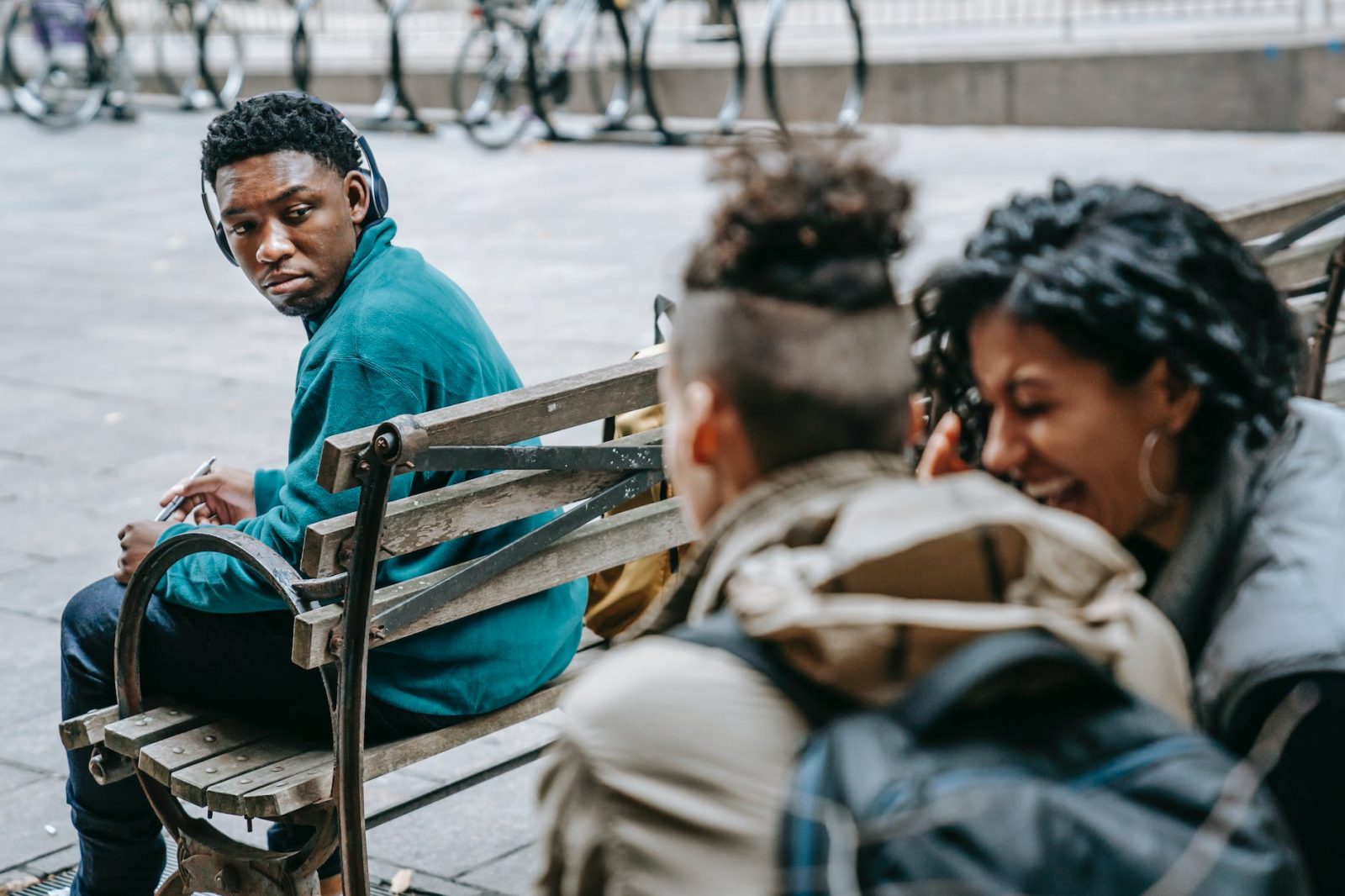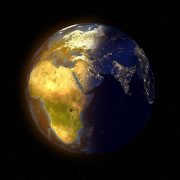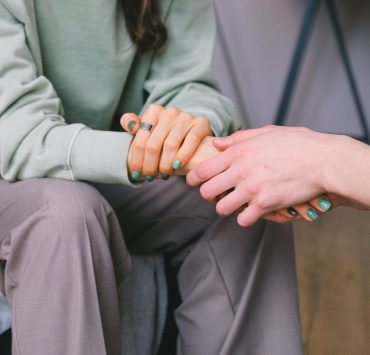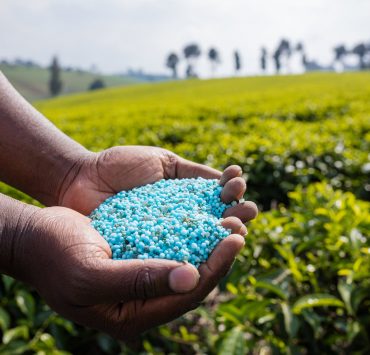
Samuel Phillips is a writer, graphic designer, photographer, songwriter, singer…
We live in a very fast-paced microwave world. A world where more activities and less wisdom are not seen as a problem, but as a trend. We are in a world where more mindless talking and quick responses to issues are the order of the day while thinking before talking is becoming a rare thing. Thus, we have more people talking from the abundance of their emotions, anger, and resentment, rather than people that are critical thinkers, who are able to look at issues with cursory attention to detail while gauging multiple sides of the same. We live in a very toxic world, to say the least, and most people are not even aware of this trend or are too caught up to pay attention to what we are doing and the possible direction such toxicity is taking us. So, there is less empathy for what people are going through in their lives. This means that, as long as we don’t know them in real life, we can say or comment on whatever we like, not thinking that some people have committed suicide because they were bullied online. That’s how insensitive our world has become because of the many pressures we all are faced with each day.
Toxins everywhere
We daily deal with toxic food on our tables because some humans with their greedy toxic hearts decided that the best way to make quick money is to produce food by circumventing the natural process that is required on our farms. So, they bathe the entire farmland with all manner of toxic chemical fertilizers, and toxic pesticides and even the storage systems where the harvested crops are stored are also laced with toxic chemicals. So, one way or the other, if you are not producing your own food and if you have no knowledge of how the food you’re eating was produced, you might just be ingesting life-threatening toxic chemicals. Thanks to the greed and the foolishness of the so-called modern ways of doing things. The level of toxicity in our world is mind boggling; we daily grapple with toxic sodas, toxic fast foods made from GM products, toxic baby formula, toxic body products, toxic toothpastes, toxic hair products, toxic cooking oil, toxic fragrances and the list is endless. The latest spot right now in the era of toxicity is on the internet and social media platforms. It’s a very broad space, but let me limit it to the Kenyan online community. Why Kenya? It just makes sense to start from home.
Toxic internet communities
The internet, I must say, is one of the greatest inventions of our time, but like everything that man creates, especially when such creation has an underlining and hidden agenda, the internet in as much as it’s a great tool for all manner of knowledge and innovation, is also fast becoming a place to find reasons to be depressed and even suicidal. It has become a place where people go to vent their frustrations, and emotional disturbances or even settle personal scores.
I have looked at the Kenyan online community, the various conversations you see and the popular reactions you get when some chords are touched and it doesn’t look good. There is one such online community that is notorious for bitterness and toxicity, called KOT which means Kenyans on Twitter. I even heard that President Uhuru Kenyatta, the former president of Kenya had to leave all social media platforms due to online bullying and toxicity. If that’s all there is to why he left the platforms, I do not know. But you get my point.
To be fair, I do not think the Kenyan online community is all toxic, there are times when some major issues affecting the nation have been given a voice in such communities. Take for instance, when Kenyans stormed the IMF Facebook Live video conference, to protest against loans being given to the nation. Kenyans went on that live stream and flooded the entire comments session with the request to IMF not to give any more loans to the Kenyan government. I like the way they put it to IMF on that live stream, like, we didn’t send this government to borrow money on our behalf. That for me was a good use of social media and the power of speaking out. If that Facebook “protest” actually stopped the loan that Kenya wanted to receive from the IMF, is what I am not sure of. But that Kenyans gave their voice in their thousands against IMF loans and the burden of debt the nation was already under, was for me, very noble and such should be encouraged.
Now, to point out a few examples of toxic conversations, out of the many that I have read online, let me share something that happened last year or so when the current President’s daughter, June Ruto got married. She got married to a Nigerian man, Dr Ezenagu who is an assistant professor in the College of Law at Hamad Bin Khalifa University (HBKU), Qatar. According to his profile, he is a trade and international tax law expert, having obtained his PhD in international tax law from McGill University, Canada. So, it was just normal that the internet was abuzz for a while but you will see where I am going with his profile.
I read an article that featured their marriage in Nairobi, detailing how they met and their relationship and other stuff. Now come and see the comments below that article. You read something like “It will end in tears”. Or “They got married so that he can use his knowledge of taxation to help his father-in-law steal taxpayer’s money”. Or “The Nigerian man will dump her; he is just there for the money”. I looked at all these words and the many other comments and I was like, just because you want to express your disdain for Nigerians or for the father of the bride, Dr William Ruto, who at the time was deputy president, or for whatever else reasons you have, then you will heap such curses on a day-old marriage of a Kenyan or human like you? That for me was a huge low. It just did not make sense that such toxic utterances could be used on anyone. It should not be.
Recently, I watched an interview by Lilian Ng’ang’a, the former first lady of Machakos county in Kenya and how she was bullied online by trolls. She was the former “wife” of the former governor of the same county. Looking at her facial expressions as she shared her story during that interview, you could tell the amount of pain she must have gone through because of the online trolls she experienced.
Now, she said something that got me thinking. She mentioned that it will be great for people to begin to check the things they say online and ask themselves questions like: will my children be proud of my online comments? Or will my parents be proud of me when they read the things, I say about others online? I really think we all need to begin to ask such simple questions about who we are in our homes versus what we declare as who we are online.
I believe sincerely that online communities can definitely be used for good purposes as I have already shared concerning the IMF Facebook Live stream. As like I have seen also, there are various stories of how needy Kenyans received much-needed help because they spoke out online. All these instances are commendable, but to turn such beautiful online communities into tools for toxicity just so that one proves a point, is very dangerous and should be discouraged. Some issues are too emotionally deep and personal to troll online by anyone without a clear understanding of what the issues are.
Is online toxicity an indication of an offline issue?
Is online toxicity by those who do it an indication of an inner offline issue? I really cannot say exactly, but it seems to point to it. For humans can only really manifest on the outside that which is contained on the inside. For as a man is filled on the inside, so he spews out. It’s just basic logic. And that is really what this article is about. That we need to be conscious of and deal with the inner pressures that are creating the emotional outbursts that we keep seeing online.
I have read severally online how Kenyans speak about Nigerians as “loud” when they express their opinions or when they are having conversations. Well, there are many sides to every story and one direction is not always the true picture of things. And this article really is not about what Nigerians do or don’t do or what Kenyans think everyone else should be doing, but much more about the danger of not realizing that we are slowly and steadily creating a very toxic online presence. And besides, is it not better to loudly express my opinion as a Nigerian instead of being a quiet Nigerian Twitter villain or social media character assassin? I leave you to answer that for yourself.
I do think many people are going through a lot of stuff in their physical daily lives, and because it’s easy to become faceless on social media, most people use those platforms as avenues for expressing their hurts and emotional issues. So, you can measure the emotional and mental health of a community by the toxicity that they allow in their lives. And this particular aspect of toxicity is not just social media, but toxicity in all areas which includes food, water, and the environment in general. For when you see a PhD in chemistry still eating canned food laced with all manner of preservatives, just to prove that going to a foreign supermarket is cool, or when you have people with education who do not see anything wrong in eating genetically modified foods, then you have someone or a group of people who definitely need some mental checks. They are not thinking straight.
Take care of your community
Some years back, one of my musician brothers wrote a book about the laws of music. In that book, he mentioned something about ancient Chinese culture, and how those old Chinese emperors use the state of music to gauge the health of the society. I find that very crucial, especially now that we have more people doing music for the money and not for the grace in the craft.
Now, if you take that Chinese culture about music and narrow it down to gauging the health of our people using the state of online communities, then we can definitely say, we have a problem that needs a very urgent solution.

So, “take care of your community” should not be just another catchphrase, but what we really need to take seriously. But how do we do that in line with reducing toxicity on our social media platforms? We can start by understanding what social media has become and then begin to figure out in our private spaces if we have been paying attention to how social media has been evolving in the past years. Below are a few things to consider about social media and how using them well can help reduce social media toxicity. You can add to them in the comment session below the article.
- Be aware that even when there are no faces to some of the posts you see on your wall, there really might be real people behind those posts. People who are really looking to engage meaningfully and maybe get some needed help with whatever they are going through. So be kind, empathetic, and aware of others.
- Do unto others what you will want others to do unto you. It’s really that simple but very powerful if we do this. Which is why it’s called the golden rule in all religions of the world. You can’t miss it with this rule.
- Social media has become a marketplace. It’s no news that most companies and businesses now find social media as a profitable place for marketing and sales of their products. Facebook ad revenue actually jumped by 42 percent in early 2018, demonstrating the company’s aptitude for making money over its aptitude to forge connections. Meaning that it’s getting clearer that social media platforms have over the years shifted from being social and sociable places to money-making platforms. And what that tells me is that, while you are busy destroying the few friendships and relationships you have on social media, those who created the social media platforms are busy making money out of your emotions.
- The over-emphasis and dependence on likes and comments are very detrimental to mental health. Multiple studies have shown that the psychological effects of likes, comments, and shares are proving detrimental to the mental health of the general population. So, as we commoditize Facebook likes and comments, something else is also happening at the side called Facebook or social media envy. There are those who get envious of those whose posts get more likes and comments, creating a very sick and bitter attitude in some social media users. But the thing is this, most of the posts that are made to look so good and socially acceptable are written by artificial intelligence, but those posts with real experiences, are written by humans. But here is what we do, we troll those posts with real human experiences and real humans behind them while we praise those posts written by AI. Let’s not forget that Artificial intelligence feels no pain but humans do.
There is another social media issue going on, in which the personas we create on Facebook and other social media platforms have led us to “self-edit” what we share, to create the perfect version of our public personas, another factor leading to Facebook envy, and a reason many people are actually buying followers on Twitter, YouTube, Facebook, and Instagram. So, outside of the toxicity of using wrong words and making inhuman and demeaning statements about people, we are also toxifying our hearts and attitudes with these various personality edits we do in order to look good and acceptable on social media. Imagine over a billion Facebook users don’t even know you exist, not to talk of bothering about what your persona is.
- From the look of things, and from hearing people talk, it appears that most social media users don’t understand the value of their personal data, and it’s become more common to accidentally expose themselves to malicious activity. Facebook users, in particular, were outraged when the third-party data firm Cambridge Analytica got its hands on the personal data of as many as 87 million Facebook users — without their permission. While that breach was the most publicized one, there have been additional breaches since then. But how does that create toxicity? Data that are collected from you when you sign up on social media are used to generate sales and marketing analyses which in turn inform the ad and marketing agencies on what kind of adverts pops up on your timeline. And because adverts and promotions are very subliminal in their approach, you will be surprised to suddenly see yourself feeling like a nobody for not having those products that these adverts push your way. Or you find yourself going to buy what you really don’t need just because the AI algorithm created a sales ad for you based on the data analyses it stole from you. Such power to control humans should bother you.
- Many are being forced to sensationalize their content just so they get likes, subscriptions, followership, and thus more monetization deals from platforms like YouTube, Facebook, and the like. But what this does to the content creators and the consumers of such content is, it takes falsehood and creates “truth” out of them. So, you see everyone following trends that are curated by AI-powered systems and algorithms, especially when the intention is to create a popular narrative, but which has nothing to do with real-life solutions to human issues. So, you have billions of different types of content online with billions of content consumers still living with billions more societal issues, which none of that content can solve. In fact, when you share real-life solutions to some of these social problems, the AI-powered systems of these social media platforms block your content from reaching those who need it. Meaning that, in our so-called modern world, we have also commercialized pain, poverty, and ignorance. That for me is very TOXIC and should change.
So, don’t think I am just talking when I mentioned that social media platforms use their AI to block contents that give real solutions, one of our very popular videos on YouTube was taken down a few days ago while writing this article. And this is not even the first time it has happened. The title of the video is: “Is a Zombie Apocalypse Coming to Your Doorstep?”. In this video, which you can watch on our website at the link above, we shared various connections for how the Covid-19 jab was a bioweapon to weaken the human system of humans for other evil pandemics that are coming. So, YouTube took it down, saying we violated their online community guidelines. My simple question is this if we cannot question what we see in the global space, and if what we see is clearly leading our people to their destruction but we keep quiet just so that we do not violate the rules of some globalist-controlled faceless humans behind YouTube and their likes, have we not joined the very queue of zombies who are not paying attention to global events and saying “yes sir” to everything? Social media and censorship have turned once bold and confident people into milkshakes, but we are not buying it. The lives of our people depend on our ability to freely express our opinions.
Conclusion
If there’s anything that Covid-19 should have taught us, it is that people do still enjoy being connected and that technology is not always the solution to social problems, but humans and connections. Once we move our personal relationships away from social media to networks that truly value privacy, we may eliminate the current toxic social media environment and get back to the basics of our common unity, which is the foundation of our communities.
Subscribe now for updates from Msingi Afrika Magazine!
Receive notifications about new issues, products and offers.
What's Your Reaction?
 PIN IT
PIN ITSamuel Phillips is a writer, graphic designer, photographer, songwriter, singer and a lover of God. As an Afrikan content creator, he is passionate about creating a better image and positive narrative about Afrika and Afrikans. He is a true Afrikan who believes that the true potential of Afrika and Afrikans can manifest through God and accurate collaborations between Afrikans. Afrika is the land of kings, emperors, original wisdom, ancient civilizations, great men and women and not some road-side-aid-begging poor third world continent that the world finds joy in undermining.





















